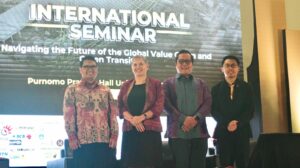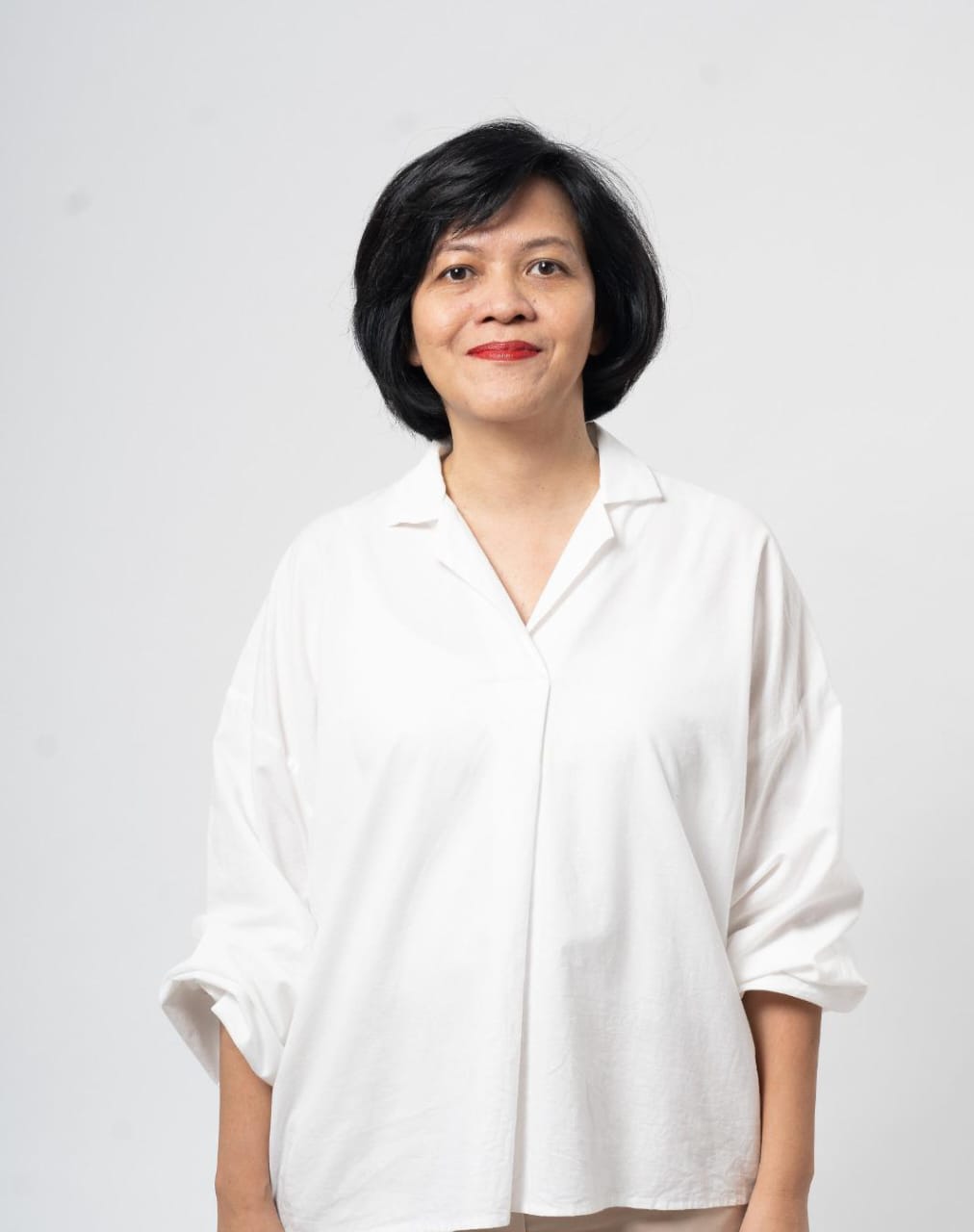The Faculty of Economics and Business (FEB) of UniversitasIndonesia (UI) held the international seminar of The 21st Economix, on Monday (27/11), at Balai Purnama Prawiro, UI Campus, Depok. Economix is the biggest annual event organized by the Indonesian Economic and Development Studies Student Association (KANOPI) FEB UI. This year, at the 21st event, the Economix theme is “Indonesia’s International Seminar: Navigating the Future of the Global Value Chain and Green Transition”.
The event, which was initiated by FEB UI, aims to be a forum for discussion, sharing and exchanging opinions to find solutions to global problems that are currently occurring. In an international seminar divided into two sessions, Economix invited experts and practitioners to discuss global value chains, international trade, downstream strategies, and the green transition.
The 10th and 12th Vice President of the Republic of Indonesia, Dr. (H.C.) M. Jusuf Kalla, expressed his views on globalization. He said, “Globalization is not a concept that just appears. What is the cause? What are the effects? These questions have accompanied us since the era of globalization began in the 1980s. At that time, during the recession in 1929, economist John Maynard Keynes proposed a significant role for government. However, in the 1950s, Milton Friedman reintroduced the concept of economic liberalism,” said Jusuf Kalla.
He illustrated globalization in the technology industry, such as the production of cellphones designed in the United States, materials and shipping in Taiwan, and manufactured in China. However, Kalla also reminded of the negative impacts of globalization. Some of these threaten the economic competition of developing countries, reduce global market stability, and put pressure on industry in several of these countries. In fact, several countries in Europe and America are now implementing protectionism to protect their own economies, giving rise to the concept of deglobalization.

Next, Prof. Ir. Purnomo Yusgiantoro, Minister of Energy and Mineral Resources for the 2000-2009 period, and Minister of Defense for the 2009-2014 period were present as keynote speakers to discuss the topic of downstreaming as an economic growth strategy in Indonesia. He stated that downstreaming in Indonesia began in 2009 through Law No. 4/2009 concerning Mineral and Coal Mining. According to him, Indonesia’s coal reserves are sufficient for 70 years and can be maintained for 250 years. However, new technology is needed to reduce coal emissions.
“Developing countries cannot immediately switch to green energy. Partnerships with countries are very important because we need green and clean technologies to minimize value chain costs and also minimize emissions. We need to change price subsidies to direct subsidies as direct subsidies can be aimed at people who need them. The concept of the energy trilemma needs to be considered. The energy transition must be carried out gradually and in line with the Sustainable Development Goals and the Paris agreement,” said Purnomo.
A similar theme was also discussed by Deputy Coordinating Minister II for Food and Agribusiness Coordination at the Coordinating Ministry for Economic Affairs, Dida Gardera. In his presentation, he revealed that one of the downstream industries is plantations, especially oil palm. The government has around 180 downstream products which currently dominate exports with around 70 percent of total palm oil exports.
Dida said, ‘In encouraging the transition towards a sustainable global value chain and green transition, the Government is committed to increasing the development of organic fertilizer or encouraging environmentally friendly agriculture and improving ecological balance. To achieve its net zero commitment by 2060, Indonesia also plans to develop a green industrial policy to encourage emissions reductions from carbon-intensive manufacturing industries. The automotive industry also supports the implementation of low-emission transportation through electric vehicles.”
Apart from presenting global thinkers in this international seminar, The 21st Economix FEB UI also held international competitions and Model United Nations (MUN) which were attended by students, academics and the general public from various countries. Also present as resource persons at the international seminar were COO of the Economic Research Institute for ASEAN and East Asia, Koji Hachiyama; Deputy Chairman of Trade of the Indonesian Chamber of Commerce and Industry, Juan Permata Adoe; Australian Ambassador to Indonesia, H.E. Ms Penny Williams; and Finance Director of PT Pertamina Geothermal Energy, Nelwin Aldriansyah.



